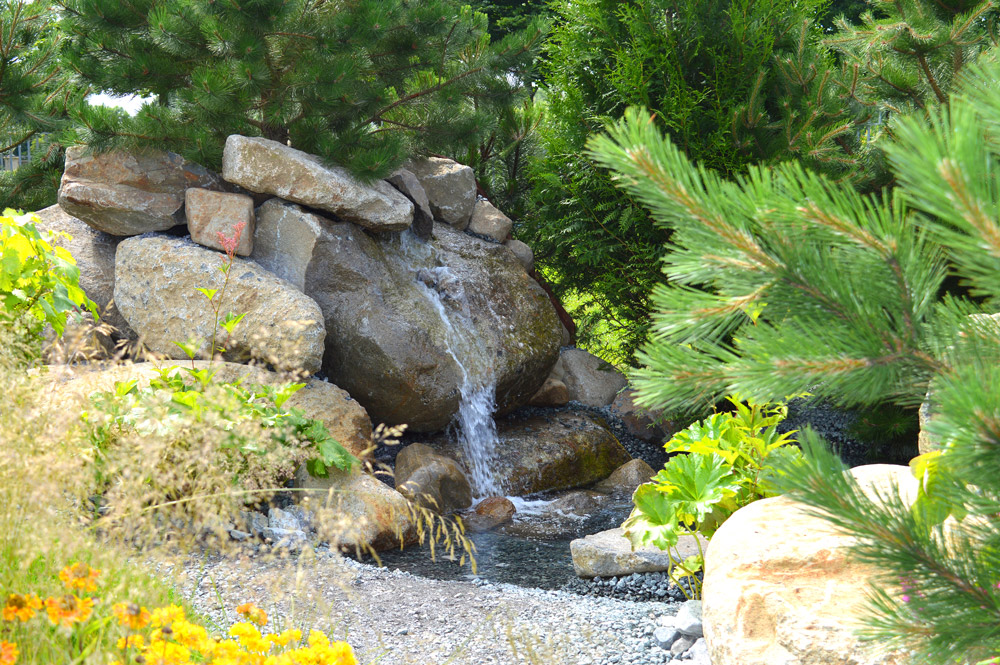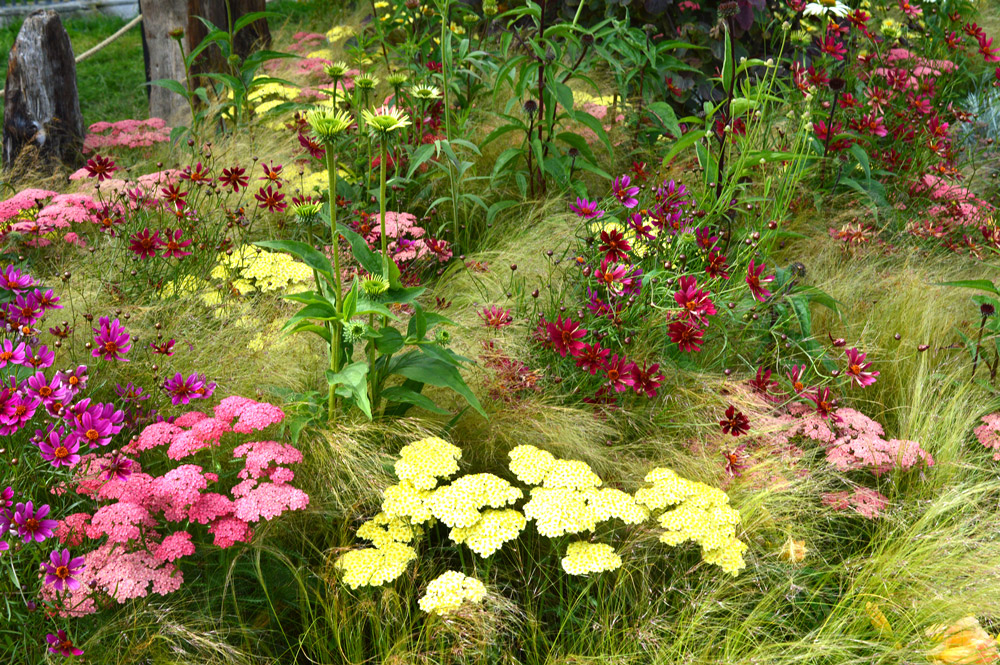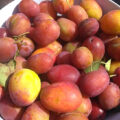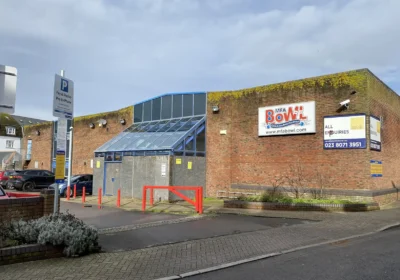Q. My front lawn is brown, what can I do as I don’t want this to happen every year?
The dry weather has wreaked havoc with plants and also wildlife. Withered and drought stressed plants do not produce the nectar needed for pollinators to feed on. For this reason, I water the most pollinator friendly plants in the summer and especially when we are groundwater scarce (you can also put out a saucer of water filled with pebbles or stones as somewhere for them to drink from).
But as for lawns, well I try to leave them to their own devices as much as possible. They will recover when the rains and autumn come. A good moss and thatch rake in the autumn will be needed though to help them, and a dollop of feed to go with it. If all this seems increasingly unsustainable (and arguably it is), then there are several options to help. Water wisely – if you are going to water the lawn, water in the late evening and long and hard, but less regularly. Choose to embrace a few weeds and a longer lawn as this will help the grass cope with the heat better, and lawn weeds are often better at staying green for longer. If the lawn has to go, choose a planted gravel garden, or a low shrub border with bark chip paths. It makes me sad to see so many front gardens paved or shingled over with little or no foliage, and this only exacerbates the climate and water scarcity problem in the long term. If you need a little inspiration, Pinterest is a good place to start, or contact a garden designer or consultant to give you a guiding hand.

Q. What is the best option to block noise from the road?
Sound waves bounce and ricochet, and you need height and density in either/or/both your fence and hedge to successfully allow the sound to ‘bounce’ over you, or to be absorbed. Both fences and hedges can achieve a good sound barrier, and can be used together to good effect.
A shorter solid fence with a hedge the other side rising above it can work really well, and be a superb pollution absorber too. You really need something at least 2m high, but if your home is slightly lower than the road then you will be okay with a slightly shorter boundary, and vice versa. When thinking about a sound barrier from traffic noise, you would do well to think too about pollution. It’s a silent health hazard that we tend not to think about within our homes. Trees and shrubs are very competent at absorbing carbon dioxide and many other particulates, and a densely grown hedge will help to combat the effects of pollution from the surrounding air as well as noise from traffic and machinery and neighbour’s gardens.
Recommendations are that planting should be as close to the source of the problem as possible as this will inevitably be more effective. Evergreen plants with dense growth from the ground upwards will supply all year-round cover better than deciduous varieties, perhaps interspersed with some taller trees dependent upon the size of the problem. If planting to a budget, Thuja plicata Atrovirens or Western Red Cedar hedging plants may be an option as it has a very dense habit and very fast growth so smaller plants can be purchased initially. Green Leylandii hedging plants are also a fast-growing species but would need careful management to keep the hedge pruned as a dense structure.
English Yew, the most majestic of hedges that filter noise and pollution does a superb job but has a much slower growing habit so if the problem needs containing urgently then larger plants would need to be purchased.
Common or Cherry Laurel, Portugal Laurel, Griselinia, beech and the slower growing Holly hedging plants all make good sound barriers even though not quite as tight knit growth as Thuja or Yew. However, the larger foliage of some of the varieties is said to provide better noise reduction than smaller leaves. Pruning at the right times of the year maintains density.
Fencing needs to be thick and solid, with no gaps for sound to pass through. And you can also get sound absorbing panels that you can attach to fencing for an added dampener. Also think about adding a water feature. Several scientific studies have proven that the sound of water lessens the perceived annoyance and noise level of traffic and other aggravating sounds significantly.
Q. I have too many courgettes – help!
Ha ha, every year gardeners lament at the gluts of veg, me included! Fresh home grown fruit and veg is glorious, and there are so many ways to celebrate and enjoy it, even for many months to come yet. Freeze what you can, look up some exciting new recipes to try, pickles, chutneys and jams are always nice, and make good Christmas presents too (sorry, I mentioned the C word!), try dehydrating, or give away to friends and neighbours.
And don’t forget we also have the Ferndown Community Larder and Food Bank, who would love to relieve you of your excess to support those less fortunate or to simply share and share alike. Find us at the rear of Ferndown Day Centre.
By Hannah Hobbs-Chell.
Horticulturist and garden designer/consultant Hannah Hobbs-Chell is the gardener at High Mead Farm, looking after four acres of gardens and landscape.
If you have a question for her, email:hannah.hobbschell@outlook.com including a picture if relevant










Leave a Reply